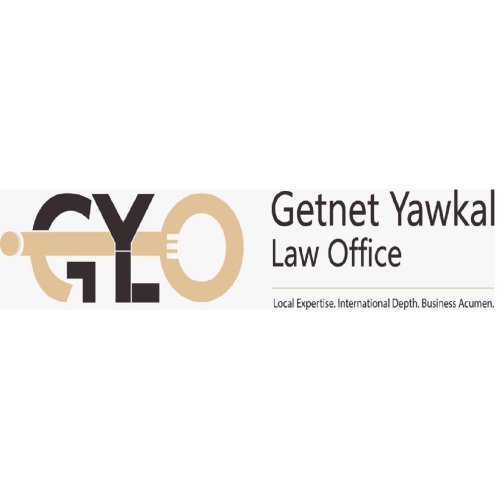Best Employment Benefits & Executive Compensation Lawyers in Addis Ababa
Share your needs with us, get contacted by law firms.
Free. Takes 2 min.
List of the best lawyers in Addis Ababa, Ethiopia
About Employment Benefits & Executive Compensation Law in Addis Ababa, Ethiopia
Employment Benefits & Executive Compensation law in Addis Ababa, Ethiopia, covers a wide range of regulatory areas concerning employee rights, benefits, and compensation structures. These laws ensure that employees receive fair remuneration, benefits, and rights, while also guiding employers in structuring competitive and compliant compensation packages for employees, including executives. The regulations are primarily enforced through the Ethiopian Labour Proclamation, which provides the legal framework for employment relationships in the country. Understanding these laws is crucial for both employers and employees to ensure legal compliance and the protection of rights.
Why You May Need a Lawyer
In the complex field of Employment Benefits & Executive Compensation, there are several scenarios where you might benefit from legal assistance:
- Negotiating Contracts: Seeking expert advice can help you understand and negotiate employment contracts, ensuring terms are fair and equitable.
- Handling Disputes: Legal counsel can assist in resolving disputes related to employment benefits, wrongful termination, or discrimination issues.
- Compliance Issues: Employers need guidance to stay compliant with local laws and regulations, avoiding potential legal penalties.
- Designing Compensation Packages: Legal experts can assist employers in designing competitive and regulatory-compliant compensation schemes for executives.
- Redundancies and Layoffs: Legal advice is beneficial in understanding rights and obligations during restructurings.
Local Laws Overview
The cornerstone of Employment Benefits & Executive Compensation law in Addis Ababa is the Ethiopian Labour Proclamation. Key aspects include:
- Minimum Wage: Although Ethiopia does not have a national minimum wage, sector-specific guidelines exist.
- Working Hours and Overtime: Regulations mandate a standard working week not exceeding 48 hours, with overtime compensated as per the law.
- Leave Entitlements: Employees are entitled to annual leave, maternity/paternity leave, and other statutory leaves.
- Benefits and Welfare: Employers must provide certain benefits such as pension contributions, social security, and health coverage.
- Termination and Severance: The law prescribes specific guidelines for lawful termination and severance pay entitlements.
Frequently Asked Questions
What is the typical length of notice required for employment termination in Addis Ababa?
Under the Ethiopian Labour Proclamation, the notice period for termination depends on the length of service and the terms of the employment contract, typically ranging from one to two months.
Are employers required to provide health insurance to employees?
While not mandatory across all sectors, many employers offer health insurance as part of a competitive benefits package, and it is encouraged as a best practice in compliance with sector-specific regulations.
Can employers in Addis Ababa require employees to work overtime?
Employers can request overtime work; however, it must be voluntary and compensated at rates specified by the labour law.
What are the statutory leave entitlements for employees in Ethiopia?
Employees are generally entitled to annual leave, sick leave, and maternity/paternity leave as prescribed by the Ethiopian Labour Proclamation.
How is executive compensation typically structured in Addis Ababa?
Executive compensation structures often include a mix of salary, bonuses, stock options, and other incentives, tailored to meet both local and international standards.
What legal protections exist against employment discrimination?
The Ethiopian legal framework prohibits discrimination based on race, color, ethnicity, religion, sex, political opinion, national extraction, or social origin.
Are retirement and pension benefits mandatory for all employees?
Employers are required to contribute to a national pension scheme for all employees as per the law, ensuring retirement benefits.
How can expatriates working in Addis Ababa understand their compensation packages?
Expatriates should seek local legal expertise to comprehend the specifics of their compensation packages, including tax liabilities and benefits.
What steps should an employer take if they need to lay off employees?
Employers must follow legal procedures, which include justifying layoffs, providing notice, and offering severance pay as applicable.
Can an employee challenge an unfair dismissal? How?
Yes, employees can challenge unfair dismissals through legal proceedings or mediation facilitated by labour authorities in Addis Ababa.
Additional Resources
For further assistance and information, consider reaching out to the following resources:
- Federal Ministry of Labour and Social Affairs: The principal body overseeing employment matters.
- Addis Ababa Chamber of Commerce: Provides guidance and support for businesses and employees.
- Legal Firms Specializing in Employment Law: Seek firms with a specialty in employment and compensation law for detailed guidance.
Next Steps
If you need legal assistance in Employment Benefits & Executive Compensation, consider taking the following steps:
- Identify Your Needs: Clearly define the issue or the assistance you require.
- Consult a Lawyer: Reach out to firms specializing in employment law for professional guidance.
- Gather Documentation: Prepare all relevant documents including contracts, pay slips, correspondence, and any other relevant materials.
- Set an Initial Consultation: Arrange an initial meeting to discuss your case and evaluate the lawyer's expertise.
- Explore Alternative Dispute Resolution: Consider mediation or arbitration as viable alternatives to litigation.
Lawzana helps you find the best lawyers and law firms in Addis Ababa through a curated and pre-screened list of qualified legal professionals. Our platform offers rankings and detailed profiles of attorneys and law firms, allowing you to compare based on practice areas, including Employment Benefits & Executive Compensation, experience, and client feedback.
Each profile includes a description of the firm's areas of practice, client reviews, team members and partners, year of establishment, spoken languages, office locations, contact information, social media presence, and any published articles or resources. Most firms on our platform speak English and are experienced in both local and international legal matters.
Get a quote from top-rated law firms in Addis Ababa, Ethiopia — quickly, securely, and without unnecessary hassle.
Disclaimer:
The information provided on this page is for general informational purposes only and does not constitute legal advice. While we strive to ensure the accuracy and relevance of the content, legal information may change over time, and interpretations of the law can vary. You should always consult with a qualified legal professional for advice specific to your situation.
We disclaim all liability for actions taken or not taken based on the content of this page. If you believe any information is incorrect or outdated, please contact us, and we will review and update it where appropriate.

















